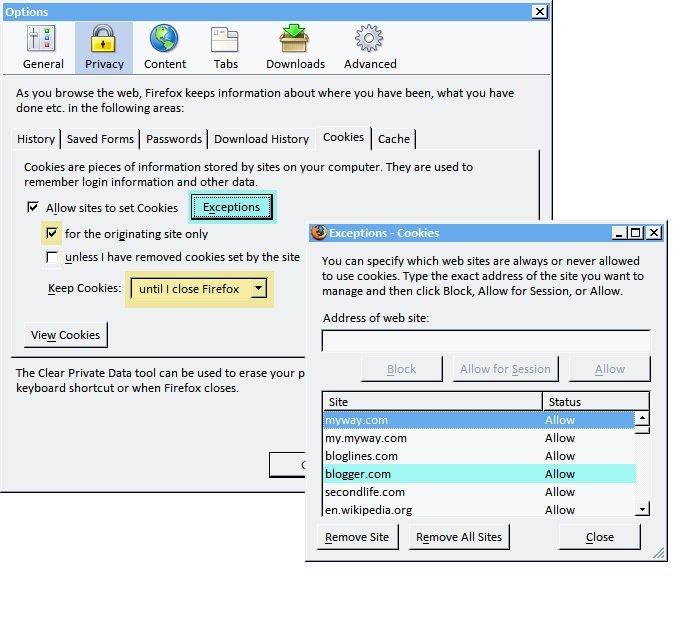Feeds are too primitive #
When I find an article or blog post I like, some sites and most blogs allow me to subscribe to a “feed” (implemented with RSS or Atom), so that I can receive more articles and blog posts. The feed is better than an email subscription because I control the subscription. With email, the sender has a list of who subscribe; with feeds, I have a list of what I subscribe to. Leaving this up to the sender means a spammer can subscribe me without permission (and this happens to me all the time). It means someone can put in the wrong email address, and I end up receiving their email (this happened to me recently, and I started receiving email about my being in the 27th week of pregnancy). With feeds these things don't happen, because I control the list.
I think the bigger promise with feeds is the possibility to subscribe in new ways. Right now, I can subscribe to a site's feed. If I see an post I like, I can subscribe to receive other posts from the same site. This assumes that if I like one post from the site, I'll like other posts from that site. Sometimes this is true; sometimes it isn't, especially when the author mixes many topics in the same blog (as I do). If I've marked a set of posts (A) I like, there are many ways to guess what other posts (B) I'll like:
- Posts textually similar, but not identical to, to the ones I marked: words(A) and words(B) overlap, but not completely
- Posts that link to the same articles as the posts I marked: X ∈ (links(A) ∩ links(B)) but X is not commonly linked to
- Posts that are linked to by the same pages as the posts I marked: for many pages X, A ∈ links(X) and B ∈ links(X)
- Posts that share the same tags as the posts I marked: tags(A) and tags(B) overlap
- Posts that are marked by the same people: my set A and your set A overlap, so tell me which posts didn't overlap
There's some remixing going on already with Feedburner, Google Reader, and others, but I want to see more automated creation of feeds based on sets of posts as the input, rather than feeds as the input. To build the kinds of things I'd like requires someone to analyze text, tags, and links for every post. It's a lot of work, which is probably why it hasn't been done.
Why Sun is doomed #
If you have a Sun workstation, an ATI Radeon 7000 with 32 MB of video RAM costs $300.
If you have a PC, ATI Radeon 7000 with 32 MB of video RAM costs around $30.
Why does Sun charge 10 times as much for essentially the same thing? I don't know. If that doesn't convince you that Sun is doomed, read this story.
Decision making #
Gut instinct isn't a good way to make these decisions. There are a lot of counterintuitive things in life. The Decision Education Foundation teaches kids to make better decisions, but it's at a small scale. Analysis and good decision making should be taught in all schools. It's more important than teaching long division or art history or a foreign language. It's probably more important than teaching chemistry or history.
Reducing dependence on foreign oil #
The United States imports more than half the oil it consumes. There are a lot of people here who say we should do X Y Z to “reduce the dependence on foreign oil”. The problem is that X Y Z usually involves reducing demand.
If we reduce demand, prices will go down.
If prices go down, the oil that costs the most to produce will be the first to be dropped. What oil is that? The domestic oil.
So if we reduce demand, a larger portion of our oil will be foreign. We'll shut down domestic oil production, which will increase our dependence on foreign oil. If our oil supply ever gets cut off, we'll be in more trouble than if we had been using more oil, because our infrastructure will have decayed.
To keep prices high, we need to make sure that our reducing demand doesn't lower the price of oil much. The way to do that is to encourage China to consume more oil. That will drive the price up, which will reduce consumption here in the U.S., without leading us to shut down production of oil. Maybe we'll even become an oil exporter. (Ha!)
Labels: future
Firefox cookie management #
There are way too many sites that send me cookies. I don't really want to keep them. However, many sites don't work at all without cookies. I've decided to do three things:
- Allow sites to set cookies, because many sites require cookies.
- Don't allow third-party cookies, because that's mainly used for tracking people across sites.
- Erase most cookies when I close the browser; I allow only cookies from a small set of sites to remain between browser sessions.
I've been using this cookie policy for several years and am happy with it. My Firefox settings are:
First, I allow cookies for the originating site only, which turns off third-party cookies. I keep cookies until I close Firefox. I also set Exceptions and set each site whose cookies I want to keep to Allow.
Labels: howto
